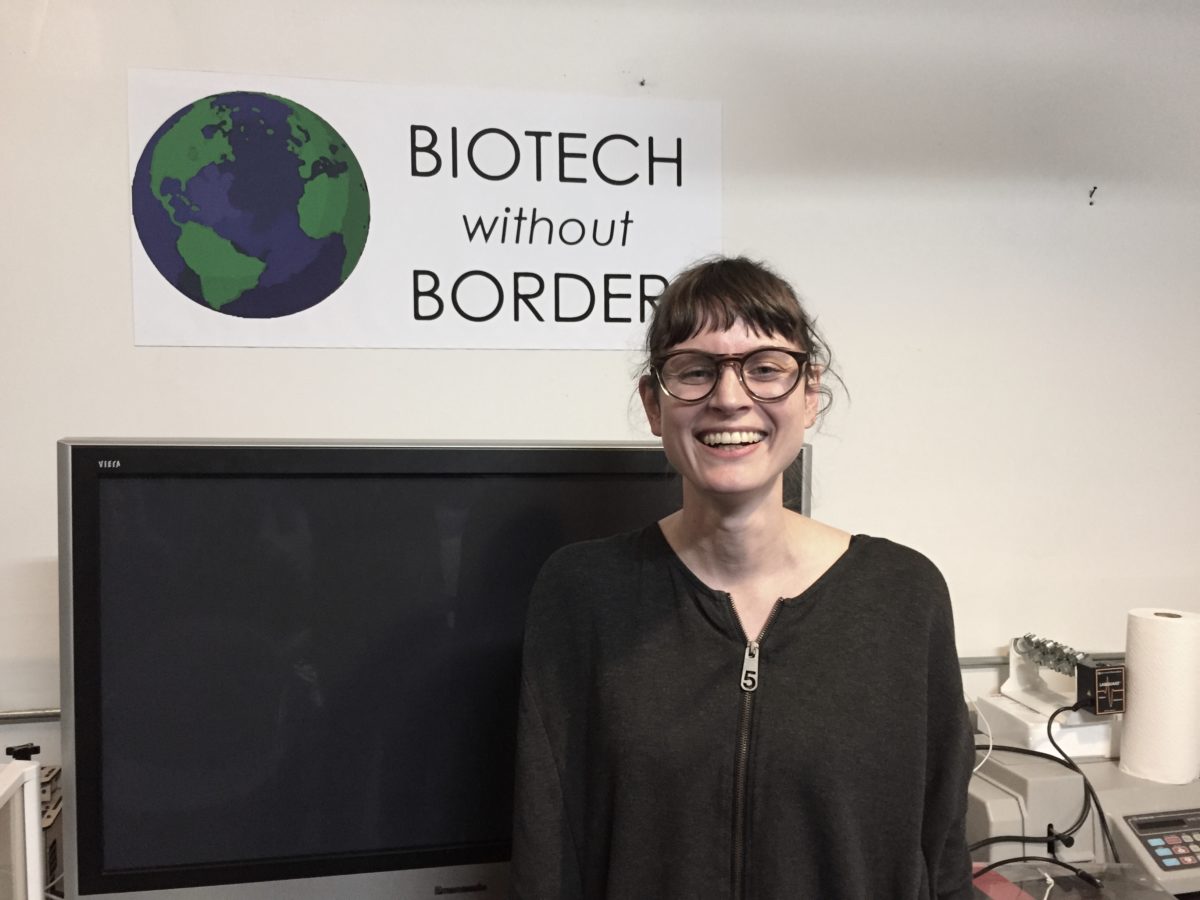The line that stuck out the most in Dr. Sandra Breum Andersen’s talk at Biotech Without Borders last week was: “Antibiotic resistance isn’t new but we are massively selecting for it.”
The result is that bacteria, some of which can reproduce every 20 minutes, are developing mutations that allow them to survive attacks by antibiotics more and more often. According to the Centers for Disease Control and Prevention, more than 2 million Americans got sick from antibiotic resistant bacteria last year, and 23,000 of them died. Worldwide, the number of similar deaths is expected to be more than 700,000, and, according to some experts, by 2030 it’s expected that these viruses will kill more people than cancer.
“These numbers have a lot of assumption in them but it’s clear this is a big problem and it’s only getting bigger,” explained Andersen in her talk. Andersen is a postdoc fellow at NYU’s Langone Medical Center, where her work focuses on the “intricate social lives of Helicobacter pylori stomach bacteria.” Good times.
So many interesting questions from this fantastic audience at our @Know_Science talk on #antibiotics by @SandraBAndersen at #biotechwithoutborders in #Brooklyn pic.twitter.com/a5EJzrFNdz
— Chiara Bertipaglia (@ChiaBertipaglia) November 9, 2017
Andersen spoke to a modest but engaged Downtown Brooklyn audience at the community bio lab, which is run by the former head of Genspace, Ellen Jorgensen. The organization is still getting up and running, but has the goal of educating the public on the topics of biotech with free talks and having a community bio lab with classes and workshops available to all.
Andersen explained that the method by which we, as a society, are selecting for antibiotic resistance is basically just that we use antibiotics for too much stuff. The more we use them, the more we kill those bacteria that are now unfit to live in the modern environment, and the more biologically incentivized the bacteria are to pass along mutations that cause resistance.
Surprisingly though, antibiotic overuse occurs way more in agriculture than it does in the doctor’s office. According to Andersen, 30 percent of antibiotics are prescribed by doctors while 70 percent are consumed by livestock.
“Basically, they’re just stuffed with antibiotics,” she explained.
And the antibiotics do work for what they’re used for. According to author Maryn McKenna, whose new book Big Chicken just came out, “Modern meat chickens reach their 5.8-pound slaughter weight in 47 days, versus 112 days a century ago to reach just 2.5 pounds.”
What’s particularly interesting is that it’s not totally known how the antibiotics help the chickens grow. For one, they do knock out a lot of viruses that would cause the chickens to struggle or die, but there’s more to it than that.
“It’s not exactly known how antibiotics enhance this weight gain,” Andersen explained. “When we treat with antibiotics there’s a different composition [of bacteria in our guts] and there are fewer of them and this probably means that the host will invest less in immune system because there’s not as much bacteria around and more in fat and muscle so this is what we think is going on but it’s not completely clear.”
This is something that she and her lab team at NYU are looking into. Andersen said there is a high correlation between antibiotic use in people and obesity in the U.S. population and wonders if a decreased bacteria load in our bodies is a link. Her team did an experiment in mice where some were given antibiotics at birth and some were not.
“Those who got [antibiotics] through their mother through weaning in early life were much more likely to be obese,” she said. “Quite strikingly they were able to take the gut microbiome in the obese mice and put them in the control group and saw them gain total mass and fat mass.”
Potentially a link between gut bacteria diversity and weight. Whoa!
Join the conversation!
Find news, events, jobs and people who share your interests on Technical.ly's open community Slack
